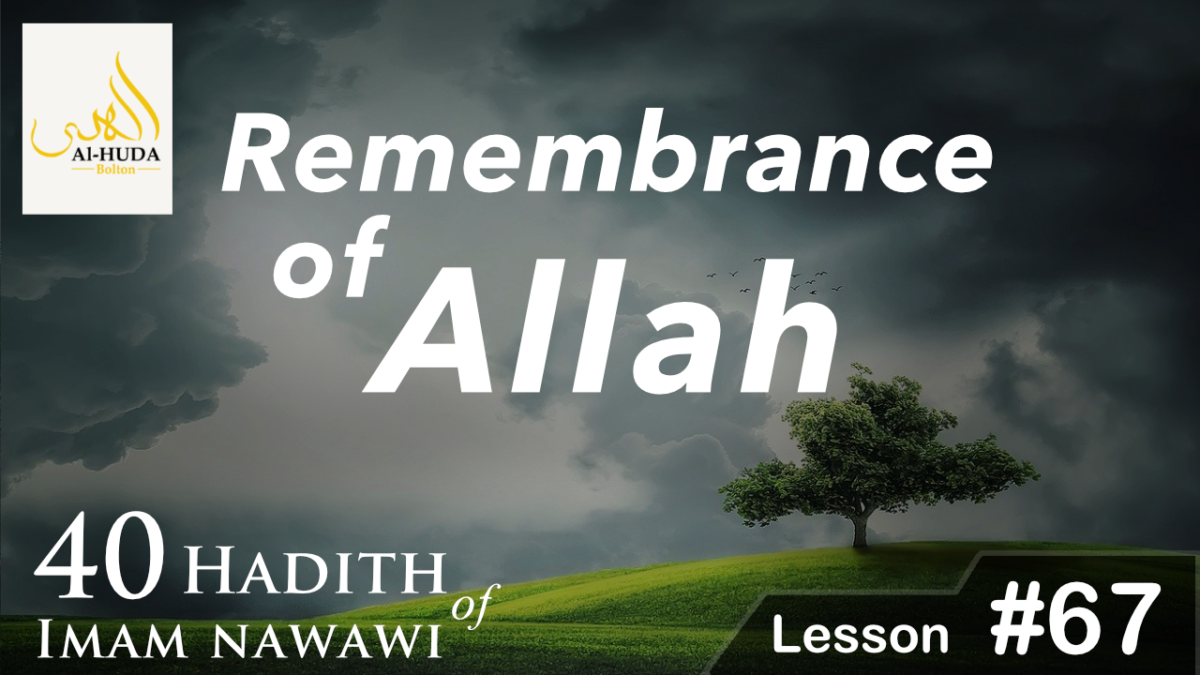With our brother Abu Arwa Ali
📚Summary:
- The great virtue of remembrance of Allah
- Remembrance of Allah is of two types, what are they?
- Two statements which are light upon tongue yet heavy upon the balance
Hadith 50 (Ibn Rajab’s 8th addendum): Remembering Allah
- Abdullah bin Busr (may Allah be pleased with him) reported that a man said: “O Messenger of Allah (ﷺ) indeed the legislated acts of Islam have become too much for us, so direct us to a broad doorway (to reward) for us to stick to.” He (ﷺ) said: “Let not your tongue cease being moist with the remembrance of Allah.” [Reported by Imam Ahmad, At-Tirmidhi, Ibn Majah, and Ibn Hibaan]
- The explanation of this hadith is divided into 2 parts
Part 1: The Question asked by the Companion
- The keenness of the companions in asking about religious matters
- The virtue and high-mindedness of the companions (may Allah be pleased with them)
- What did the companion mean by the word “legislated matters”?, it is in reference to voluntary deeds (“Shara’i). He wants to identify a single broad action he can focus on that would give him an immense amount of reward
- All obligations are to be fulfilled
- Remembrance of Allah is of two types:
- General: e.g. prayer, reciting the Qur’an, etc
- Specific: tasbih, tahlil, takbir, and tahmid (what are some examples?)
- Examples from the scholars
- Abu Huraira reported: The Prophet (ﷺ) said: “There are two statements which are light upon the tongue yet heavy upon the balance and dear to The Ever-Merciful; Subhan Allahi wa bihamdihi, subhana Allahi Al-‘Adheem”. [Sahih Al-Bukhari]
- The statements of the Salaf regarding loving Allah and remembering him in abundance
Part 2: Summary of Benefits
- The keenness of the companions in asking about their religious matters
- The virtue of remembrance of Allah and being constantly engaged in it

